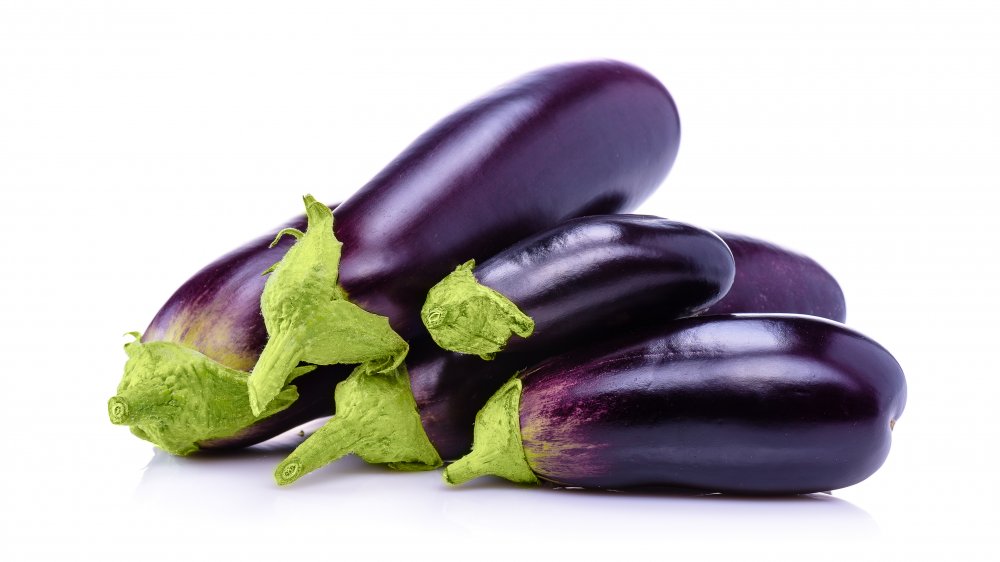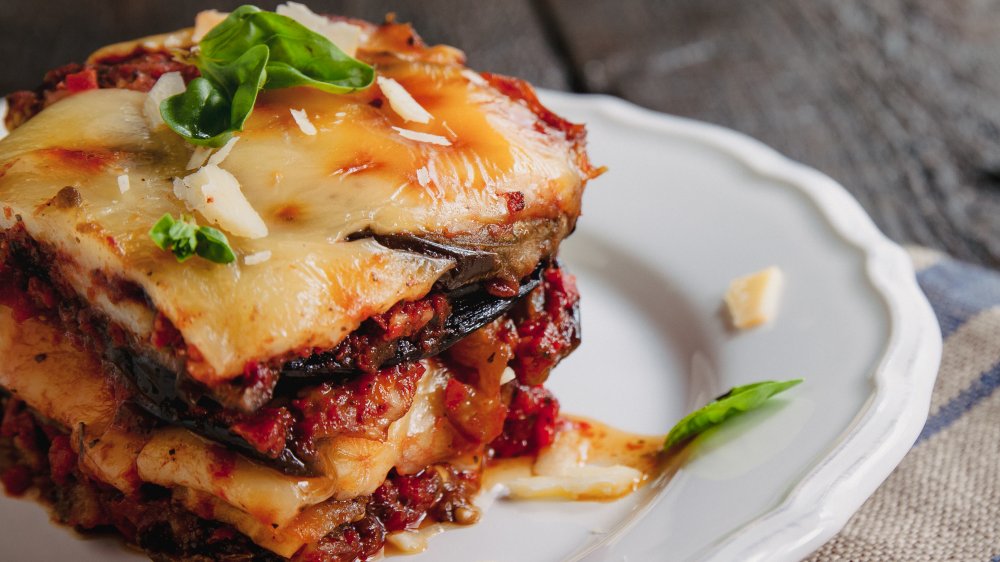You Should Think Twice Before Eating Eggplant. Here's Why
Vegetables tend to get a bad rap when we're kids, whether it's due to our taste buds being too sensitive for all the bitter, earthy flavors common to vegetables, or a general dislike for all things healthy. But as we grow and our tastes evolve, vegetables become more acceptable, even desirable. There is one veggie you can continue to shun without guilt though: the eggplant. Eggplants are, to put it plainly, shady as heck. They masquerade as a vegetable when they're actually a berry, deceiving us all right off the bat.
According to Business Insider, the list of vegetables disguising their true fruit identities is a long one, but eggplants take their shadiness a step further by operating under aliases. Are they eggplants, aubergines, or brinjals? Guess it depends on whether you're from the U.S., Britain, or India, according to Our Everyday Life. Perhaps shadiest of all, though, is the fact that eggplants aren't necessarily the nutrient-rich, figure-friendly food we all thought they were.
Eggplant may not be all that healthy
Although commonly used as a meat alternative, the nutritional content of an eggplant is pretty unremarkable. Healthy Eating describes eggplant as an incomplete protein, meaning it's lacking one or more essential amino acids which can be found in animal protein. While eggplants are fat-free, Very Well Fit points out they are not a significant source of vitamins or minerals. One redeeming quality of the eggplant, however, is its skin (as long as you wash it first). Though it can be tough and taste bitter to some, the skin contains a powerful antioxidant called nasunin which can help improve your memory (via Taste of Home).
But, with that reward comes risk. As a part of the nightshade family, some people may be allergic or intolerant to eggplants, and eating them can possibly result in inflammation or digestive issues (via Unbound Wellness). Eggplants also contain calcium oxolates, which could lead to kidney stones if consumed in high quantities. Finally, the last and most disappointing trick up this vegetable/fruit's sleeve, is its ability to be delicious when it wants to be, but our waistlines pay the price.
Extra fat and calories may be lurking in your eggplant
Eggplant's texture can be incredibly creamy, and part of what makes it so versatile in cooking is that it soaks up tons of flavor. Unfortunately, that also means it's a sponge for all things buttery, oily, and saucy. In other words: Eggplants are a calorie and fat trap. One serving of Bon Appetite's recipe for Eggplant Parmesan packs 620 calories, and 41 grams of fat.
The New York Times suggests skirting the sponginess issue by roasting, or grilling eggplant instead of frying it and, if you're really set on sautéing it, roast the eggplant first to prevent some of the oil absorption. The Kitchn says microwaving chopped eggplant before sautéing will curtail oil absorption as well. Other options include salting chopped eggplant, or soaking it in milk before cooking, both of which collapse the eggplant's cell structure, leaving them less available for oil to take over. Just avoid chopping eggplant too far in advance to prevent oxidation.
Now that you understand eggplant's shadiness, perhaps it's worth a second look!


